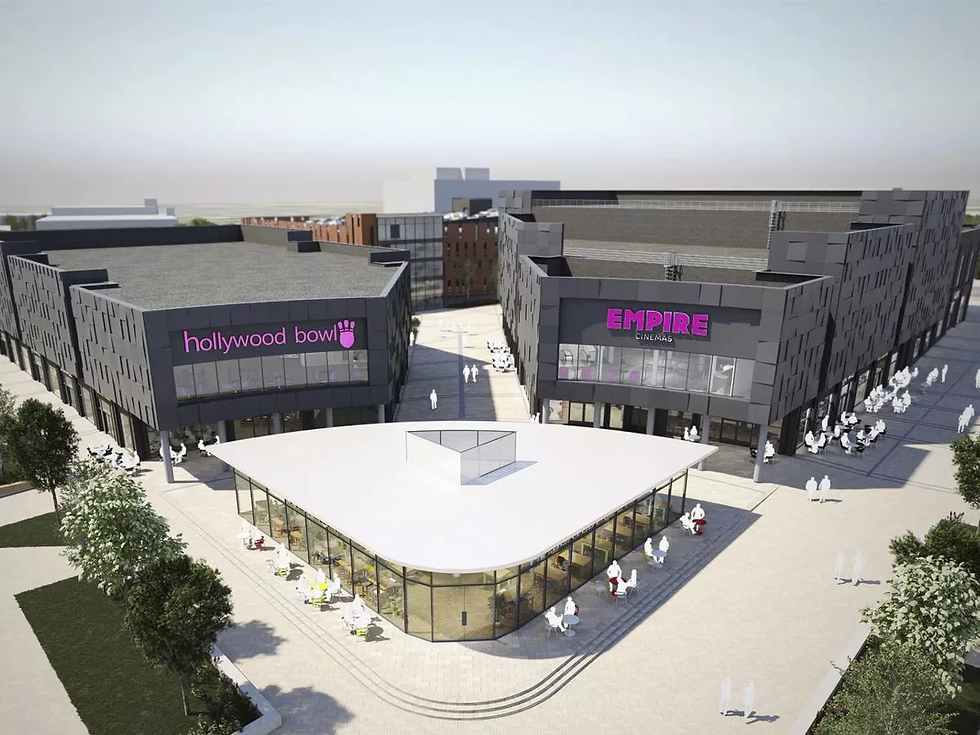“Well‑intentioned” rent reform may choke off investment — and stall Crewe’s revival
- chris mcg

- Jul 14, 2025
- 3 min read

In July 2025, the government quietly included a provision in the English Devolution & Community Empowerment Bill to ban upward‑only rent reviews in new (and renewal) commercial leases in England and Wales.
The aim is to help small businesses and stem vacant high‑streets—but critics say the unintended consequences could be profound.
What’s changing?
Upward‑only rent review clauses—which prevent rent falling on lease renewal—will be illegal in new (or renewed) leases. Instead, landlords must choose between:
A fixed rent, or
A rent review allowing both up and down adjustments.
Existing leases remain unaffected, but new agreements must comply.
Why this alarmingly matters for Crewe

Crewe’s regeneration depends heavily on blended commercial‑public‑private investment—including big anchor developments like Royal Arcade (Royal Bus Station + Car Park) and later leisure‑led schemes
The rollback of upward‑only rent clauses:
Destabilises rental income models: Landlords and investors have traditionally relied on predictable, raise‑only rents to stack revenue, service debt and ensure financing viability. The ban increases income volatility—rents could fall during downturns, affecting yield models. The British Property Federation (BPF) and property advisory firms argue this undermines lease‑backed finance and forces revaluations
Weakens investment appetite: Advisory voices warn a “seismic effect” on capital flows—some fear this may derail inward investment, especially in marginal towns . If returns are less predictable, investors may say “no thanks” to lower‑tier, higher‑risk markets like Crewe.
Pushes landlords toward safer paths: The unintended result may be a shift toward shorter-term “contracted-out” leases, or landlords discarding commercial leases altogether in favor of fixed‑rate tenancies or speculative development delays, all of which undercut regeneration momentum
Crewe has already waited far too long
Crewe's Royal Arcade scheme has languished for over five years. While the bus station and car park finished recently (May/July 2024)
the leisure‑led second phase—including mixed residential, cinema, youth centre—has been repeatedly pushed back over economic and funding concerns
Three months ago, Cheshire East displayed temporary “meanwhile uses” proposals for the fenced-off Royal Arcade area—grass, benches, events space—funded via UK‑Shared‑Prosperity funding But temporisation is no substitute for substantive mixed‑use development: residential units, leisure anchors, jobs, footfall.
Local experts have been scathing. A LinkedIn commentator noted:
“Cheshire East’s regeneration … has been poorly managed, leaving a derelict site for five years … promises made time and time again and never followed through.”
Why banning upward‑only reviews hurts Crewe
Increased financial risk—Developers rely on reliable future income to underwrite projects. If rental returns could drop, risk margins widen, and financing dries up.
Weaker development and delays—Landlords may pivot to short leases, contracted-out deals, or abandon speculative building, drastically slowing progress.
Missed confidence momentum—Crewe was supposed to ride HS2‑led optimism. But HS2 phase cancellation (October 2023) already complicated funding; this new policy change deepens uncertainty at the wrong time
Contrary to local appetite—Crewe needs stability and anchor development for community confidence—“meanwhile uses” aren’t enough. Delays in securing serious investment mean the town remains stuck in perpetual promise mode.

Where do we go from here?
Cheshire East and local MPs must engage in urgent dialogue with central government and the Bill's committee to highlight real-world implications for towns like Crewe.
The policy should be rethought with local development conditions in mind—perhaps with exemptions or transitional arrangements for regeneration zones tied to funding deals.
If no adjustment is made, developers—especially for phase 2 Royal Arcade—will likely withdraw or delay, leaving locals with a bland grassed patch instead of homes, leisure, offices, and long-term employment.
🔚 Conclusion
The intention behind banning upward‑only rent reviews—to help small business—might be laudable. But it risks hamstringing regeneration in towns desperate for investment. Crewe is already five years down the road with Royal Arcade stalled, HS2 cancelled, and community cynicism deepening.
Unless local authorities and councillors escalate their case, this shift could be the final nail in the coffin for meaningful, long-term redevelopment—turning a welcome urban transformation into yet another “missed opportunity.”



Comments